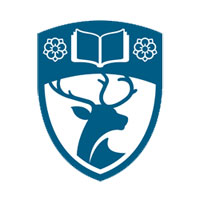fees waived
Civil Engineering, MEng (Hons), with industry placement
University of Southampton, United Kingdom
Subject ranking
UK / Guardian 2025 4th
UK / CUG 2024 5th
UK / Times 2025 8th
Costs
food & rentS$17.2K / year
Entry requirements
Scholarships
21 - 50 available
10 available
Unlimited quantity
Unlimited quantity
Limited quantity
Information
Code
Intakes
Website (External)
Programmes
Information
Duration
2030
Course summary
Civil engineering is essential to the sustainable future development of society, from planning and construction, to water supply and coastal defence. You’ll develop the skills to design and build creative solutions to challenges in the built environment, infrastructure and cities, and the management and teamwork skills needed to succeed in industry. In the first two years, you'll develop a solid grounding in the fundamental engineering science, as well as the basis of civil engineering. You'll be introduced to key design skills, such as sketching model-making and computing, through workshops and through design projects.In your third year you'll explore highway and traffic engineering, and structural stability and geotechnics in more depth, and do an individual project. In your final year, you'll focus on design, management and teamwork and work on a master's level group design project.The Industrial Placement Year is an additional year-long module that allows you to apply for a placement with an engineering-based organisation. During your year-long placement, you will fulfil the role of a trainee engineer on a full-time basis. Year 1: An Introduction to Engineering Design; Civil Engineering fundamentals; Mathematics for Engineering and the Environment I; ThermoFluids; Mechanics, Structures and Materials.Year 2: Liveable Cities; Structural Analysis; Mathematics for Engineering and the Environment II; Structural Design; City Infrastructure Design Project; Soil Mechanics; Hydraulics; Numerical Methods.Year 3: Design 3, Individual Project, Structural Stability and Finite Element Analysis, Geotechnical Engineering.Year 4: Group Design Project; Project Economics and Management plus additional advanced module options. Testing is conducted through a combination of unseen written examinations and assessed coursework in the form of problem-solving exercises, laboratory reports, design exercises, essays, and individual and group projects. Experimental, research and design skills are assessed through laboratory reports, coursework exercises and oral presentations.The Industrial Placement Year is assessed via an individual reflective report.Modules
Assessment method
Professional bodies
Professionally accredited courses provide industry-wide recognition of the quality of your qualification.
Year 1: An Introduction to Engineering Design; Civil Engineering fundamentals; Mathematics for Engineering and the Environment I; ThermoFluids; Mechanics, Structures and Materials. Year 2: Liveable Cities; Structural Analysis; Mathematics for Engineering and the Environment II; Structural Design; City Infrastructure Design Project; Soil Mechanics; Hydraulics; Numerical Methods. Year 3: Design 3, Individual Project, Structural Stability and Finite Element Analysis, Geotechnical Engineering. Year 4: Group Design Project; Project Economics and Management plus additional advanced module options.
A local representative of University of Southampton in Singapore is available online to assist you with enquiries about this course.

